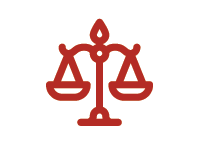Partnership Form of Business in Thailand
An Overview of Partnership Form of Business in Thailand
A Partnership is a form of business arrangement where 2 or more people come to an agreement to cooperate with each other for advancing their mutual interests. Most of these arrangements are of economic nature. Partnerships could be within sectors or across sectors.
The Civil and Commercial Code requires at least 2 persons for starting a Partnership. Usually, all the partners are liable jointly and wholly for the commitments of their Partnership. A registered partnership is a juristic person and is required to be registered with Commercial Registrar while a non-registered partnership is a non-juristic person and comes into existence without any explicit registration.
Partnerships are typically governed by the Partnership Agreement. Unless otherwise directed by Partnership Agreement, none could become the member of a Partnership without the consensus among all the Partners.
While the Non-Registered Partnerships are Non-Juristic Persons, the Limited and Registered Partnerships are Juristic Person. The primary difference between the Limited and Registered Partnerships Partnerships derives from the fact that in Limited Partnership the liability of Partners is limited, as are the rights.
Ordinary Registered Partnerships in Thailand
In the case of an Ordinary Partnership, all the Partners are wholly and jointly liable for all the obligations of their Partnership arrangement. Jointly refers that every Partner is liable and accountable for all the Partner’s wrongdoings. Whereas, wholly refers that all the Partners are legally responsible with all of their personal wealth for the obligations and other debts of the Partnership that may occur, given that the assets of the Partnership arrangement are insufficient for satisfying the claims of the creditors. It implies that the personal assets may be liquidated for fulfilling the business debts.
For all kinds of partnerships, a minimum of 2 Partners is required. Entry into the Ordinary Partnership is restricted, requiring consensus among all the Partners.
As mentioned before, the Ordinary Registered Partnerships are required to be registered with Commercial Registrar. The Managing Director who is appointed for managing the Partnership arrangement is responsible for the registration. The registration is required to take place in the province where the Partnership head office is located. For the purpose of registration of a partnership, the fee is 1,000 Thai Baht for every 100,000 Thai Baht of the registered Capital with the minimum fee of 1,000 Thai Baht and the maximum fee of 5,000 Thai Baht.
Limited Registered Partnerships in Thailand
There are two distinguished classes of Partners in a Limited Partnership. And, each class has its own kind of rights and liabilities. In a Limited Partnership, there can be one or more Partners. And, these Partners are jointly and wholly liable to carry out all the obligations mentioned in the partnership deal. This Partners class is known as General Partners. By the word “Jointly”, it indicates that each Partner is accountable for all the acts of the Partner, be it right or wrong. And, by “Wholly”, it makes it clear that the Partners are responsible for their private assets as well. It should be clear that only General Partners can be Directors of an LLP or Limited Liability Partnership.
The second class of Partners is known as Limited Partner. There should be one or more Limited Partners in a Limited Liability Partnership and their liability is restricted to the total sum of capital contributed to the Partnership. A Limited Liability Partnership is required to be registered with the Commercial Registrar. The Managing Partner of the Limited Liability Partnership is responsible for registering the Partnership in the state’s jurisdiction where they plan to build the head office of the Partnership. The cost of registering a Limited Partnership is approximately 1,000 Thai Bath for every 100,000 Thai Baht of registered capital. However, the minimum fee for registration is 1,000 Thai Bath whereas the maximum fee for registration is 5,000 Thai Baht.
It is obvious that registering a partnership is simpler and easier for Thai nationals. It has fewer restrictions too. But, in the case of foreigners, the process has strict restrictions and Foreign Business Act needs to be followed.
There are two kinds of Partnership in Thailand. This includes a simple partnership and limited partnership. In simple words, as per the Thailand Civil and Commercial Code, a partnership is defined as “A contract in which two or more persons decide to work together for a common goal, and share the profits which may be obtained from the business or union.”
It is necessary for the limited partnership to do registration and is seen as a legal entity. And, the unlimited partner can take the responsibility to function as a managing partner. Hence, if a partner with limited liability impedes with the business process, they will be considered as unlimited partners and their liability will also be unlimited.
As per the Foreign Business Act, any foreigner who aspires to carry out a partnership deed is not allowed. But, if that foreigner is willing to invest more than half of the total investment cost or is ready to become a managing partner, the Foreign Business License may be applicable. Hence, in order to avoid the Foreign Business License, it is recommended that foreigners do not invest more than half of the overall investment or act as managing partner for the partnership. And, in case they are not functioning as a managing partner, then it is hardly possible that they will be able to protect their interest.
Doing Business in Thailand
There are numerous visitors and tourists who come to visit Thailand, especially from the western countries,who are attracted by the alluring beauty and enchanting charms of the country. As a result, many of them decide to stay back for a longer duration than planned. Also, many tourists are able to establish good relationships with Thai residents in a short time. Here, they feel so homely and relaxed that they get motivated and with so many business opportunities in Thailand, they endeavor to run small companies or businesses in Thailand and make it their second home.
However, it is necessary to understand the restrictions and laws that are imposed on foreigners who want to Startup business in Thailand. For instance, as per Thailand’s law, a foreign national cannot open a store, shop or any other such organization anywhere in the country in which the foreigner is the sole owner or single proprietor of the business. However, this doesn’t mean foreigners cannot cannot set up a business in Thailand, just that they need to follow the right process. US citizens especially have a specific advantage since they come under the US Treaty of Amity which allows them to be a sole owner of a business in Thailand.
Registration of Partnership Company in Thailand
The following procedures are applicable for the Limited Partnership and Registered Ordinary Partnership:
- All the Partners are required to apply for permission to be able to use the partnership name. This will involve urging to study the records and conclude that the proposed partnership name has not been used by anyone else.
- The application forms must include all the relevant information and required details such as partnership name, names of the managing partners and liability of the power if any, the nationality, address details, their age, the amount of investment being made and signs of all the partners. The managing partner must duly sign the application form in front of the Partnership and Company Registrar. Alternatively, the signing of the document can also be done in the presence of an ordinary or extraordinary member of the Bar Association of Thailand. In other cases, you can appoint a lawyer to witness the registration on behalf of the partnership.
- The fee for partnership deed will depend on the number of partners. For instance, in the case of three partners, the fee is 1,000 Thailand Baht and an amount of 200 Thailand Baht as a fee for each additional partner.
- After the registration is done, a certificate will be issued.
Contact Startup in Thailand for a detailed discussion on potential partnership options and partnership business registration in Thailand.
Also check out the FAQ page for a quick overview of the critical factors to consider before starting a new business in Thailand.
Read more:
Legal Assistance in Thailand
Thailand Market Entry
Why Thailand Is A Good Business Destination
Business in Thailand – How Different it is from Rest of the World
Thailand reforming itself for doing business easier in Thailand
Growth of Startups in Thailand and Future Outlook
What you should consider before doing business in SE Asia








